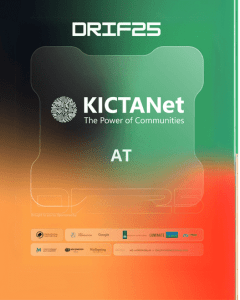In recent years, the adoption of digital identity systems has surged globally. As of 2024, over 2.05 billion digital identities have been issued worldwide, with more than 100 digital ID networks in operation.
This rapid expansion is reflected in the market’s growth, which stood at approximately USD 39.07 billion in 2024 and is projected to reach USD 98.64 billion by 2030.
However, this digital transformation presents significant human rights challenges.
At least 4.4 million people globally are stateless, lacking recognized nationality and, consequently, access to basic rights and services. Integrating digital identity systems raises critical questions about inclusivity, privacy, and the potential for systemic discrimination.
At RightsCon2025, experts gathered to discuss the intersection of digital identity and human rights, focusing on four critical areas: statelessness and the right to nationality, people on the move, access to public services, and surveillance and democratic participation.
The discussion featured insights from Left to Right, Ashanut Okille (Akijul Enabling Change), Denique Ferguson (SlashRoots), Htaik Than “Yadana” (Braveheart), and Thandike Chauke (Lawyers for Human Rights).
Challenges and Considerations in the Development of Inclusive Digital Identity System.
a) Statelessness and the Right to a Nationality
Stateless individuals face barriers in proving their identity, limiting their access to fundamental rights. Digital identity systems, if well-designed, could provide inclusive solutions. However, as Thandike pointed out, “Many stateless people are left out of digital ID systems because they lack foundational documents. Instead of solving exclusion, these systems can entrench it further.”
b) People on the Move
Migrants and refugees often struggle with identification in new countries. Without recognized credentials, they may be denied essential services. Htaik Than noted, “For people on the move, a flexible, portable, and rights-respecting digital identity system is crucial. It must be built with safeguards against misuse, ensuring migrants are not subjected to discrimination or surveillance.”
c) Access to Public Services
Digital identity is increasingly required to access education, healthcare, and social protection. However, issues of data privacy and exclusion persist. Denique Ferguson highlighted, “When digital IDs become mandatory for public services, those without them face systemic discrimination. Governments must ensure alternative verification methods and safeguard against data misuse.”
d) Surveillance and Democratic Participation
With digital identity often linked to biometric data, concerns about surveillance and its impact on civic freedoms are growing. Ashanut Okille Akijul warned, “The intertwining of digital identity with surveillance mechanisms poses a serious risk to democratic participation. We must advocate for strong governance frameworks that prioritize privacy and transparency.”
The Way Forward.
KICTANET has been actively engaged in initiatives related to digital identity. In September 2024, we highlighted concerns regarding Kenya’s digital ID system, emphasizing the need for inclusivity and accountability. Earlier, in February 2024, we participated in the World Conference on Statelessness in Kuala Lumpur, Malaysia, focusing on digital identity issues.
To ensure digital identity systems uphold human rights, the following steps are essential:
- Inclusivity and Accessibility: Digital ID systems must be designed with marginalized communities in mind, providing alternative forms of identity verification.
- Data Protection and Privacy: Robust legal frameworks should safeguard against data misuse and unauthorized surveillance.
- Portability for Migrants and Refugees: Cross-border recognition mechanisms should be established to assist displaced individuals.
- Public Participation in Policy-Making: Civil society must be engaged in shaping digital identity policies to ensure transparency and accountability.
Additionally, in October 2023, we co-hosted the inaugural gathering of the Digital ID and Human Rights Civil Society Community during the 18th Kenya Internet Governance Forum. At KICTANet we believe that multi-stakeholder collaboration is crucial to ensure it serves as a tool for empowerment rather than exclusion or control.
![]()




